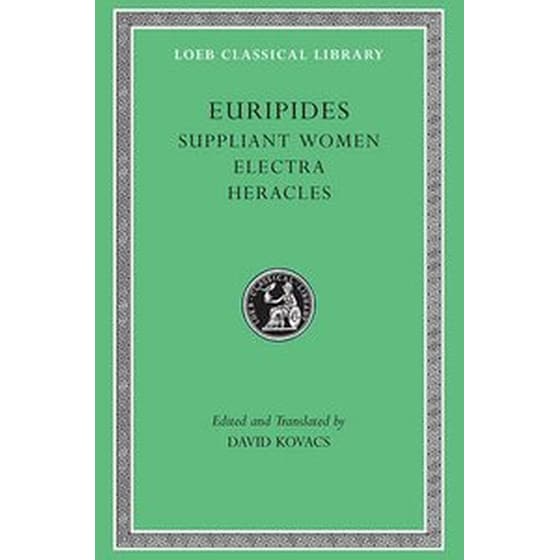One of antiquity's greatest poets, Euripides (ca. 485-406 BCE) has been prized in every age for the pathos, terror, surprising plot twists, and intellectual probing of his dramatic creations. Here, in the third volume of a new edition that is receiving much praise, are four of his plays.
"Suppliant Women" reflects on war and on the rule of law. Euripides' "Electra"--presenting the famous legend of a brother and sister who seek revenge on their mother for killing their father--is a portrayal interestingly different from that of Aeschylus or Sophocles. "Heracles" shows the malice of the gods--and mutual loyalty as the human response to divinely sent disaster. And the theme of the tragic unpredictability of life is developed in "Trojan Women."David Kovacs gives us a freshly edited Greek text and a new translation that, in the words of "Greece and Rome," is "close to the Greek and reads fluently and well."

